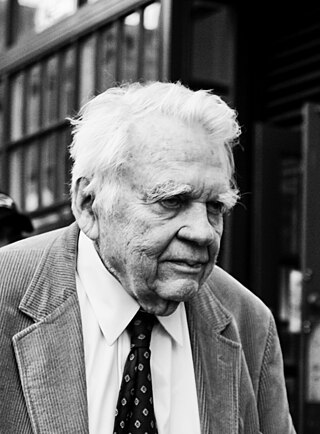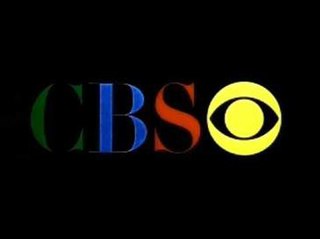See also
- 60 Minute Man (architecture)
- Hour (disambiguation)
- "Rixty Minutes", 2014 episode of Rick and Morty
60 Minutes is an American news television program which premiered on CBS in 1968.
60 Minutes or Sixty Minutes may also refer to:

60 Minutes is an American television news magazine broadcast on the CBS television network. Debuting in 1968, the program was created by Don Hewitt and Bill Leonard, who distinguished it from other news programs by using a unique style of reporter-centered investigation. In 2002, 60 Minutes was ranked number six on TV Guide's list of the "50 Greatest TV Shows of All Time", and in 2013, it was ranked number 24 on the magazine's list of the "60 Best Series of All Time". In 2023, Variety ranked 60 Minutes as the twentieth-greatest TV show of all time. The New York Times has called it "one of the most esteemed news magazines on American television".
CBS Broadcasting Inc., commonly shortened to CBS, is an American commercial broadcast television and radio network serving as the flagship property of the CBS Entertainment Group division of Paramount Global and is one of the company's three flagship subsidiaries, along with namesake Paramount Pictures and MTV.
Breakfast television or morning show is a type of news or infotainment television programme that broadcasts live in the morning. Often presented by a small team of hosts, these programmes are typically marketed towards the combined demography of people getting ready for work and school and stay-at-home adults and parents.
The CBS Evening News is the flagship evening television news program of CBS News, the news division of the CBS television network in the United States. The CBS Evening News is a daily evening broadcast featuring news reports, feature stories and interviews by CBS News correspondents and reporters covering events around the world. The program has been broadcast since July 1, 1941, under the original title CBS Television News, eventually adopting its current title in 1963.

The Early Show was an American morning television show that aired on CBS from November 1, 1999 to January 7, 2012, and the ninth attempt at a morning news-talk program by the network since 1954. The program aired Monday through Friday from 7:00 to 9:00 a.m., although a number of affiliates either pre-empted or tape-delayed the Saturday edition. The program originally broadcast from the General Motors Building in New York City.
Today may refer to:

Andrew Aitken Rooney was an American radio and television writer who was best known for his weekly broadcast "A Few Minutes with Andy Rooney", a part of the CBS News program 60 Minutes from 1978 to 2011. His final regular appearance on 60 Minutes aired on October 2, 2011; he died a month later at the age of 92.

The Walt Disney Company has produced an anthology television series since 1954 under several titles and formats. The program's current title, The Wonderful World of Disney, was used from 1969 to 1979 and again from 1991 onward. The program moved among the Big Three television networks in its first four decades, but has aired on ABC since 1997 and Disney+ since 2020.
CBS News is the news division of the American television and radio service CBS. CBS News television programs include the CBS Evening News, CBS Mornings, news magazine programs CBS News Sunday Morning, 60 Minutes, and 48 Hours, and Sunday morning political affairs program Face the Nation. CBS News Radio produces hourly newscasts for hundreds of radio stations, and also oversees CBS News podcasts like The Takeout Podcast. CBS News also operates CBS News 24/7, a 24-hour digital news network.
Face the Nation is a weekly news and morning public affairs program airing Sundays on the CBS radio and television network. Created by Frank Stanton in 1954, Face the Nation is one of the longest-running news programs in the history of television.

Myron Leon Wallace was an American journalist, game show host, actor, and media personality. Known for his investigative journalism, he interviewed a wide range of prominent newsmakers during his seven-decade career. He was one of the original correspondents featured on CBS news program 60 Minutes, which debuted in 1968. Wallace retired as a regular full-time correspondent in 2006, but still appeared occasionally on the series until 2008. He was the father of Chris Wallace.

WKRC-TV is a television station in Cincinnati, Ohio, United States, affiliated with CBS and The CW. It is owned by Sinclair Broadcast Group, which provides certain services to MyNetworkTV affiliate WSTR-TV under a local marketing agreement (LMA) with Deerfield Media. The two stations share studios on Highland Avenue in the Mount Auburn section of Cincinnati, where WKRC-TV's transmitter is also located.
KPIX-TV, also known as CBS Bay Area, is a television station licensed to San Francisco, California, United States, serving as the San Francisco Bay Area's CBS network outlet. It is owned and operated by the network's CBS News and Stations division alongside independent station KPYX, also licensed to San Francisco. The two stations share studios at Broadway and Battery Street, just north of San Francisco's Financial District; KPIX's transmitter is located atop Sutro Tower. In addition to KPYX, KPIX shares its building with formerly co-owned radio stations KCBS, KFRC-FM, KITS, KLLC, KRBQ and KZDG, although they use a different address number for Battery Street.
60 Minutes II was an American weekly primetime news magazine television program that was intended to replicate the "signature style, journalistic quality and integrity" of the original 60 Minutes series.
In music, counterpoint is a texture involving the simultaneous sounding of separate melodies or lines "against" each other.

Sixty Minutes is a defunct news and current affairs programme which ran each weekday at 5:40 pm from 24 October 1983 to 27 July 1984 on BBC1. It replaced Nationwide, and integrated the BBC's main regional news magazines into a single programme, as per its predecessor.
A calendar is a catalogue, list or table, most commonly used for a table of days, months, years etc.
A newsroom is the place where journalists work to gather news to be published.

CBS Thursday Night Movie was the network's first venture into the weekly televising of then-recent theatrical films, debuting at the start of the 1965–1966 season, from 9:00 to 11 p.m.. CBS was the last of the three U.S. major television networks to schedule a regular prime-time array of movies. Unlike its two competitors, CBS had delayed running feature films at the behest of the network's hierarchy. Indeed, as far back as 1960, when Paramount Pictures offered a huge backlog of pre-1948 titles for sale to television for $50 million, James T. Aubrey, program director at CBS, negotiated with the studio to buy the package for the network. Aubrey summed up his thinking this way: "I decided that the feature film was the thing for TV. A $250,000 specially-tailored television show just could not compete with a film that cost three or four million dollars." However, the network's chairman, William Paley, who considered the scheduling of old movies "uncreative", vetoed the Paramount transaction.